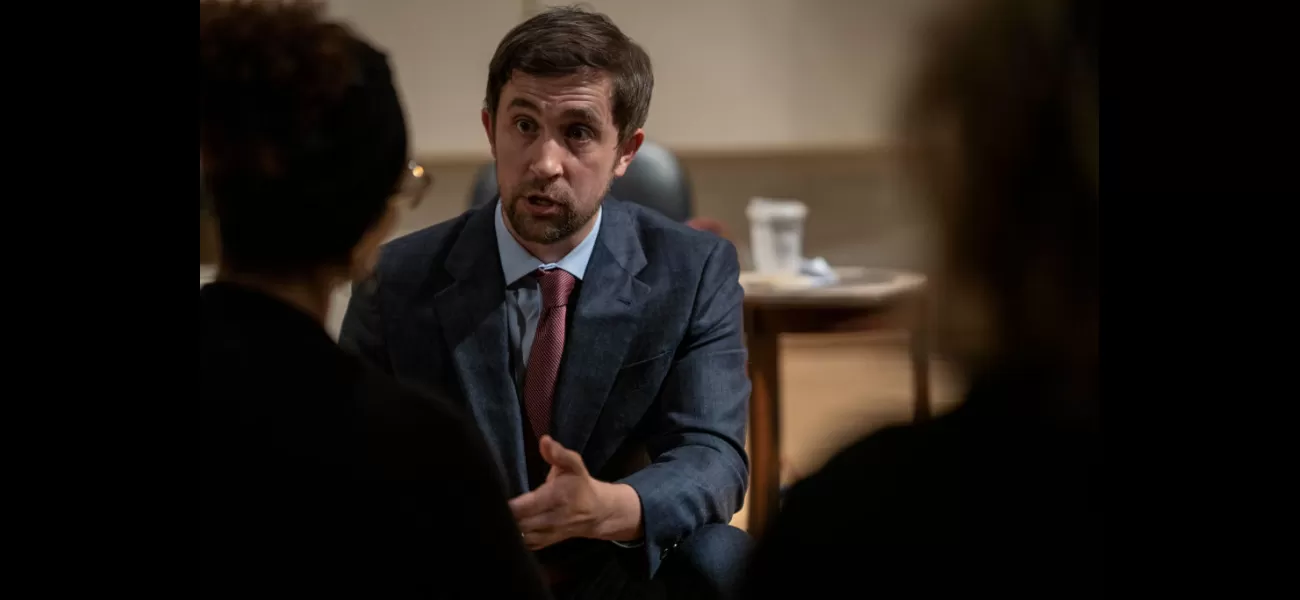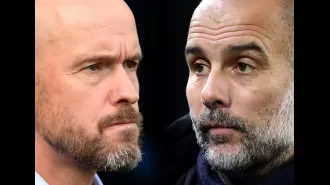Rufo's targeting of black academics is a political attack, says author.
Yamahtta-Taylor believes that the right's opposition to DEI is mainly focused on questioning the presence of Black people in elite institutions.
April 2nd 2024.

Christopher Rufo first gained national attention for his campaign against critical race theory, but he has since expanded his efforts to include exposing plagiarism by Black academics. Some have criticized his tactics, calling it a political attack. Rufo's concerns about plagiarism are part of his larger fight against diversity, equity, and inclusion initiatives, which he believes are a liberal takeover of higher education. In his book, he argues that these initiatives are a threat to the integrity of higher education.
Many have pointed out that the arguments against DEI from the right often center on the idea that Black people do not belong in prestigious institutions, which carries a racist undertone. As Keeanga Yamahtta-Taylor wrote in an op-ed for The New Yorker, the recent backlash against anti-racist programs is an attempt to cast doubt on the presence of Black individuals in positions of power. Taylor also notes that Kimberle Crenshaw, the scholar who coined the term critical race theory, believes that this backlash is not made in good faith.
Crenshaw points out that what is being labeled as critical race theory is actually a broad range of ideas, many of which are not about racism at all. She also suggests that much of the success of Rufo's campaign can be attributed to the post-George Floyd backlash. According to Crenshaw, this backlash is a result of the shifting societal norms and the fear of losing power and privilege.
Rufo himself has admitted that his goal is to "politicize the bureaucracy," and he has succeeded in doing so by drawing attention to the fight over higher education. He has also been candid about his motivations and his belief that he played a role in the resignation of Harvard University's president, Claudine Gay, over plagiarism concerns. In an interview with Politico, Rufo claimed that his coverage of the accusations, along with other right-wing journalists, played a crucial role in her resignation. He also antagonized those on the left, challenging them to cover the story.
However, while Rufo's tactics may have been successful in forcing Gay's resignation, he has not been able to replicate the same success with other Black women academics at Harvard University. In his most recent accusation against Harvard sociologist Christina J. Cross, Rufo appears to have acted alone. His right-wing media allies did not publicize his claims, and the national media did not cover the story. Cross's colleagues have also staunchly defended her, calling the allegations false.
Issac Kamola, director of the Center for the Defense of Academic Freedom at the American Association of University Professors, believes that the attacks on Black academics are a coordinated effort to discredit them. He also notes that if the accusations are being made through anonymous complaints, it is likely a political attack rather than a genuine concern for academic integrity. Plagiarism, Kamola argues, should be evaluated by unbiased experts, not by those with a political agenda to destroy the careers of Black scholars.
Many have pointed out that the arguments against DEI from the right often center on the idea that Black people do not belong in prestigious institutions, which carries a racist undertone. As Keeanga Yamahtta-Taylor wrote in an op-ed for The New Yorker, the recent backlash against anti-racist programs is an attempt to cast doubt on the presence of Black individuals in positions of power. Taylor also notes that Kimberle Crenshaw, the scholar who coined the term critical race theory, believes that this backlash is not made in good faith.
Crenshaw points out that what is being labeled as critical race theory is actually a broad range of ideas, many of which are not about racism at all. She also suggests that much of the success of Rufo's campaign can be attributed to the post-George Floyd backlash. According to Crenshaw, this backlash is a result of the shifting societal norms and the fear of losing power and privilege.
Rufo himself has admitted that his goal is to "politicize the bureaucracy," and he has succeeded in doing so by drawing attention to the fight over higher education. He has also been candid about his motivations and his belief that he played a role in the resignation of Harvard University's president, Claudine Gay, over plagiarism concerns. In an interview with Politico, Rufo claimed that his coverage of the accusations, along with other right-wing journalists, played a crucial role in her resignation. He also antagonized those on the left, challenging them to cover the story.
However, while Rufo's tactics may have been successful in forcing Gay's resignation, he has not been able to replicate the same success with other Black women academics at Harvard University. In his most recent accusation against Harvard sociologist Christina J. Cross, Rufo appears to have acted alone. His right-wing media allies did not publicize his claims, and the national media did not cover the story. Cross's colleagues have also staunchly defended her, calling the allegations false.
Issac Kamola, director of the Center for the Defense of Academic Freedom at the American Association of University Professors, believes that the attacks on Black academics are a coordinated effort to discredit them. He also notes that if the accusations are being made through anonymous complaints, it is likely a political attack rather than a genuine concern for academic integrity. Plagiarism, Kamola argues, should be evaluated by unbiased experts, not by those with a political agenda to destroy the careers of Black scholars.
[This article has been trending online recently and has been generated with AI. Your feed is customized.]
[Generative AI is experimental.]
0
0
Submit Comment





